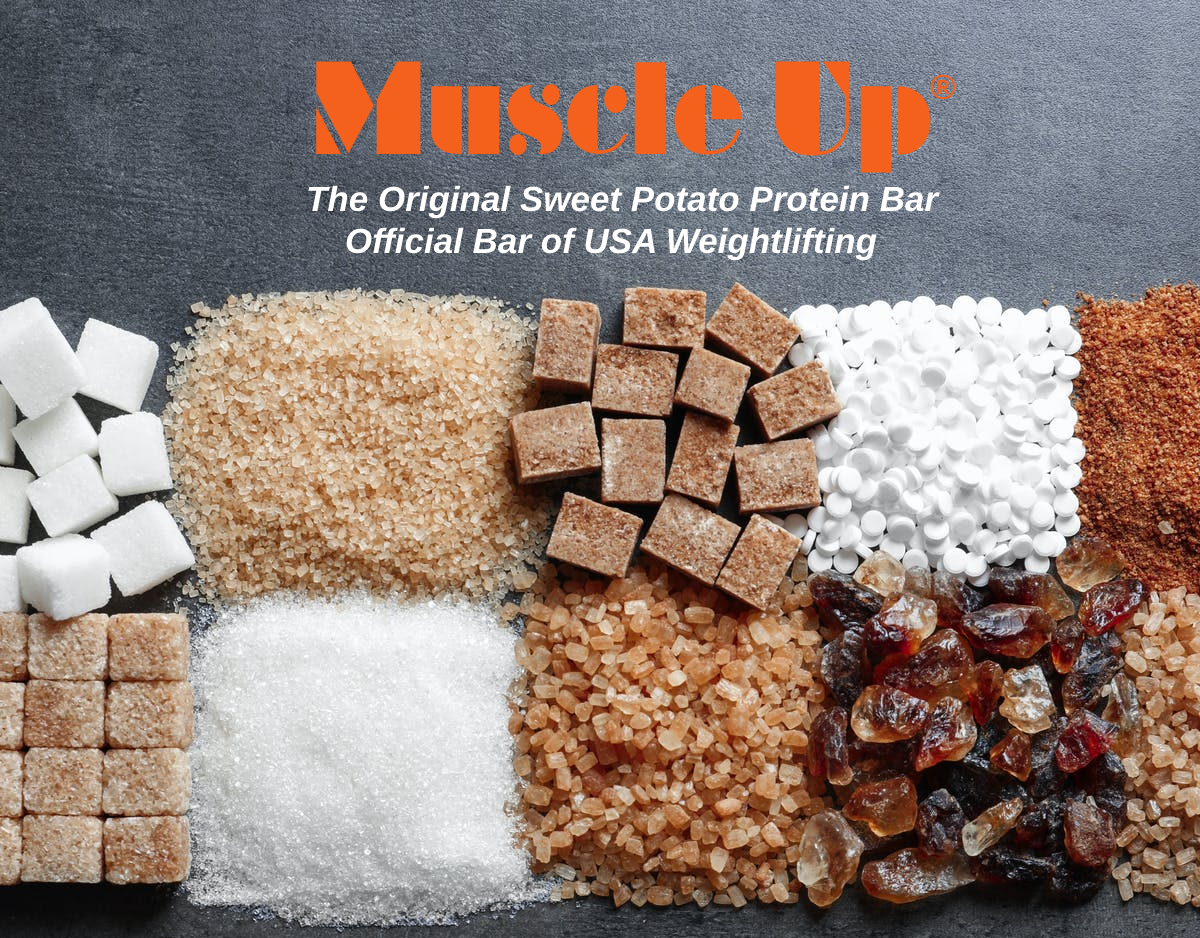
Sugar! Is there a more controversial, more misunderstood topic in the world of fitness and nutrition?
Natural sugar, artificial sugar, total sugar, added sugar, sugar substitutes, artificial sweeteners, natural sweeteners, high fructose, low fructose...the list goes on!
In this article, we will take the mystery and the controversy out of the world of sugar and make things very easy for you. Remember this:
1- Natural is better than artificial. This holds true in all aspects of nutrition, and in life!
2- Total sugar is important, not necessarily the added sugar. Your body doesn’t know the difference.
3- Buying items with “zero sugar” is not always a better choice.
With that said, keep it simple. Consume small amounts of natural sugar, avoid artificial sugars and sweeteners!
Natural is always better than artificial! One would think that this rule would be pretty self explanatory, but we still see so many “healthy” products out there on the market that are loaded with artificial sweeteners. We will touch more on artificial sweeteners below, but suffice it to say, try to stick with natural sweeteners like fruits and vegetables in their whole form if possible, and do whatever you can to avoid any sweeteners that you can’t pronounce and that are made in a factory! A few grams of natural sugar is better than any amount of artificial sweetener!
The FDA now requires manufacturers to state grams of added sugar on nutritional labels. In an attempt to try to get consumers to consume less high fructose corn syrup (HFCS), the FDA created the term “added sugars”. Many natural ingredients fall into this category too and are counted in the “added sugars” column. This has led to much confusion. Remember, sugar is sugar, whether it is an original ingredient or an added ingredient, your body does not know the difference.
“The problem is not high fructose corn syrup (HFCS), but rather too much total sugar consumption. Natural cane sugar is not a healthy alternative to HFCS. Despite their different origins, these two sugars have fundamentally similar properties, and both have negative effects on our health when overconsumed.” ~ Harvard University
When it comes to sugar intake, the American Heart Association* recommends that women should have no more than six teaspoons (25 grams) and men should have no more than nine teaspoons (37 grams) of added sugar per day. There are some bars on the market that will put you over that limit all on their own!
In the protein bar world, we can find lots of brand name bars that are loaded with sugar that sticks to your teeth. We all know who the culprits are, we don’t have to name them here. If your bar has more total sugar than protein, it would be wise to steer clear!
In an effort to solve this problem, some bar companies have resorted to using “sweeteners”or “sugar substitutes” in their products. People may think it’s a better option. This is where things can get really confusing!
High-intensity sweeteners like stevia, monk fruit, aspartame and sucralose don’t provide calories and can be several times sweeter than sugar. Their impacts vary depending on the compound, however, recent research suggests they may alter gut bacteria, enhance sweet cravings and contribute to various metabolic disturbances.
Sugar alcohols like xylitol, erythritol and sorbitol are another category of sweeteners that fall under the broad heading of sugar substitutes. They contain fewer calories than sugar and are generally less sweet or as sweet as sugar. Polyols are FODMAPs, a collection of compounds in food shown to exacerbate gastrointestinal symptoms in some people.
Again, we don’t need to name the protein bars that fall into this category, we all know who they are! In fact, they love to boast on the front of their packaging how low their sugar content is. How do you think one can make a “Birthday Cake” flavored protein bar with 0-1g of sugar? And they almost always have an awful aftertaste!
We set out to make a protein bar that fits our rules: Natural is better than artificial, Keep total sugars low and “Zero sugar” is not always better. We use a small amount of natural sweeteners in our bars, namely sweet potato and coconut nectar. We never use artificial sweeteners, stevia or sugar alcohols. We keep our total sugar to 8 grams per bar, while protein is twice that amount at 16 grams.
Our bars are not super sweet! We do not make a “Birthday Cake” bar. But they are NATURAL AND DELICIOUS!!


